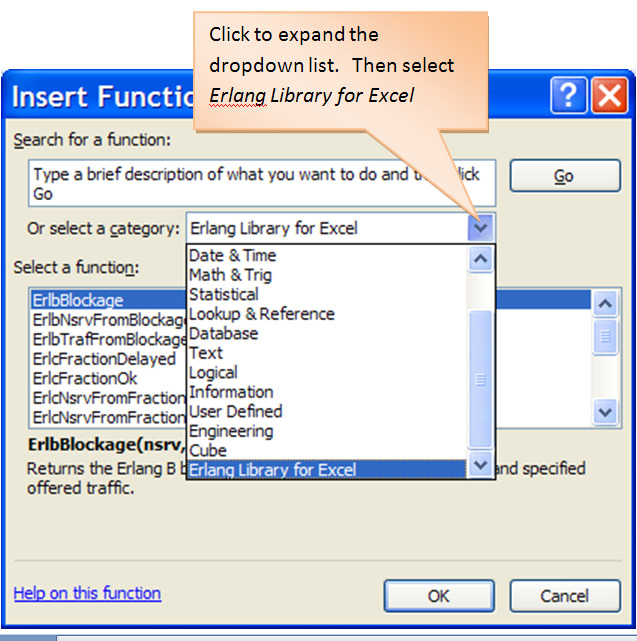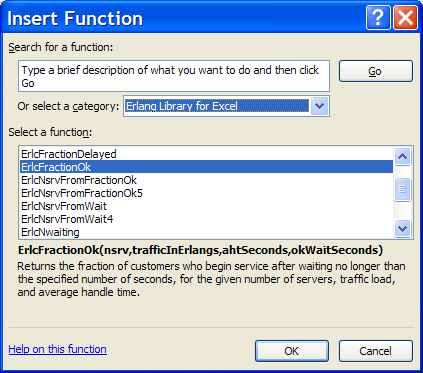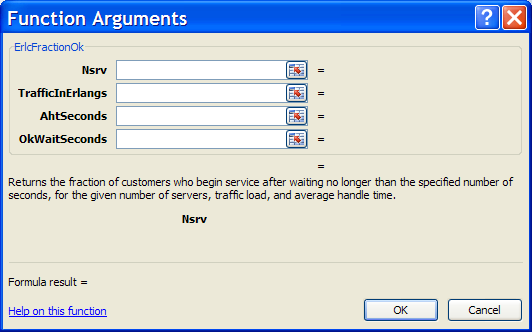 |
Erlang Library for Excel |
Extensive help is available on the worksheet functions contained in the Erlang Library for Excel. There are two ways to get help for an Excel worksheet function:
Make sure that your Excel settings are such that the Formula bar is visible. On the formula bar, locate the "fx" button and press that button:

Pressing the "fx" button causes the Insert Function dialog window to appear. In that window, click at the right of the "select a category" drop-down list box and select "Erlang Library for Excel" (if this category is not present, then select "User Defined") :

In the "Select a function" list, select the name of one of the Erlang functions, for example, ErlcFractionOk. Notice that near the bottom of the Insert Function window, a short description of the function appears. (Unfortunately, the "Help on this function" link here does not work. But you can find detailed help information on each function by opening the help file that you are now reading, namely, ErlangLibraryHelp.chm.)

Clicking on the name of the function causes Excel's Function Arguments dialog window to appear. Here you find a textbox for each of the function arguments, with the name of the argument appearing to the left of the textbox:

Here you may enter function arguments as constant values or as formulas. Formulas may contain cell references. You can use the small buttons to the right of each textbox in the Function Arguments dialog to locate cells in your worksheet as an aid to building expressions that contain cell references.
Unfortunately, the"Help on this function" link (see
lower left corner of the above image) does not work. If you click it,
you will receive a message that help is not available. Nevertheless, detailed
help is available for every worksheet function in the Erlang Library
for Excel. Look for it by opening ErlangLibraryHelp.chm, or by opening
the file index.htm in the \helppages subfolder of
the Application Folder. (See installation instructions.)
About the Erlang Worksheet Functions